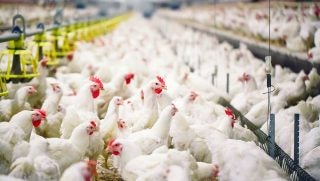If you were to ask someone off the street to name five living scientists, you’d be lucky not to be met with a dumbfounded look. Luckier still would be if that person could name even two or three scientists. Because let’s face it, science isn’t exactly an industry packed with household names.
So when one of the industry’s most popular superstars, Neil deGrasse Tyson, attaches his name to a film project, we take notice. That’s where we are with “Food Evolution,” a documentary based on the public dialogue about our food system. The movie is narrated by Tyson and is directed by Oscar-nominated filmmaker Scott Hamilton Kennedy. As Kavin Senapathy wrote for Forbes, the movie “navigates the thorny landscape of a debate that often casts GMOs as a scapegoat for myriad perceived ills of modern agriculture. With the gap between public opinion and consensus on the safety and benefit of GMOs wider than with any other scientific issue, the average consumer may have more questions than answers on these technologies.”
The film is set to be released Friday, June 23, in New York City. Here’s a look at the trailer:
It’s important to have an independent investigation into the science of how we grow and produce food, and the filmmakers delivered. The movie will hopefully create a better understanding of what is happening in today’s farming landscape and will speak positively about the safety and sustainability of our modern food system. It will dispel the myth of health hazards connected to GMOs, but more than anything, it should open people’s eyes to what 2 million Americans do every day in their fields and on their pastures.
Here are five things you need to know about this film before it debuts:
1) Being independent was vital to the filmmakers
The “Food Evolution” creators partnered with the Institute of Food Technologists to get the film made. IFT is a non-profit, scientific society that publishes peer-reviewed scientific journals and consists of over 17,000 food scientists around the world, spanning across academia, the public sector and the private sector. Despite the credibility that the IFT brings to the table, the filmmakers insisted on complete creative control so as not to suggest there was any influence by businesses, organizations, or industry lobbyists. The IFT willingly granted freedom to Kennedy and his team to do the final cut as they saw fit.
2) The project is spearheaded by science
The overarching goal for this project was to promote a more science-based conversation about food, and not to advance any particular agenda. People can take away from it what they will, and it’s likely that those involved in agriculture will be happy with the end result. The movie features some of the leading voices on all sides of the debate on agricultural genetic engineering, and it takes the viewer through several aspects of the food system, including in farmers’ fields and in laboratories. There isn’t a piece of this puzzle that isn’t made transparent.
3) Not all scientists are happy with their involvement
Dr. Marion Nestle, a well-known author and food-studies professor, says in the movie trailer above, “I don’t think that genetically modified organisms are dangerous.” But in the past 24 hours, Nestle has been making a huge stink on social media that her comments (which fall in line with almost the entirety of the scientific and medical community) were taken out of context. She has now called the film “slick piece of GMO industry propaganda,” is saying that she was misrepresented, and said that she has asked the director to remove that piece of the film. (Her asking that kind of goes against the whole notion of keeping the film independent and away from undue influence, doesn’t it?) Of course, Nestle is a member of the IFT backing this film, but notes in a blog post that “I can’t help but think Monsanto or the Biotechnology Innovation Organization must have given IFT a grant for this purpose” — a claim for which there is absolutely no evidence for.
4) People may change their minds in favor of GMOs
In her Forbes piece, Senapathy said something that is heartening: “There’s a good chance that this film will change a lot of minds if polls at advance screenings leading up to this week’s theatrical release are any indication.” Senepathy attended a screening late last year, and the director asked the audience how many of them avoid or fear GMOs over safety or environmental concerns. She said before the screening, about 70 people raised their hands; when asked the same question after the screening, only two hands were raised. Win! (If you haven’t already, you really should read Senapathy’s Forbes writeup.)
5) The discussion doesn’t end here
Nobody, including the filmmakers, is saying that the discussion about genetic engineering is over. On the website for “Food Evolution,” they write: “It is important to remember that each GMO, like most technology, should be examined on a case by case basis. In other words, we need to continue to look at the risks and benefits of each product, particularly with a new look and perspective on those being developed by the public sector for humanitarian ends, without getting stuck on debating the process itself any longer.” This film isn’t pro-GMO as much as it’s pro-science, and we need to constantly buildup upon and improve our science.
Here is another clip from “Food Evolution” that’s worth watching. If you get the opportunity to see the movie, don’t pass it up!


